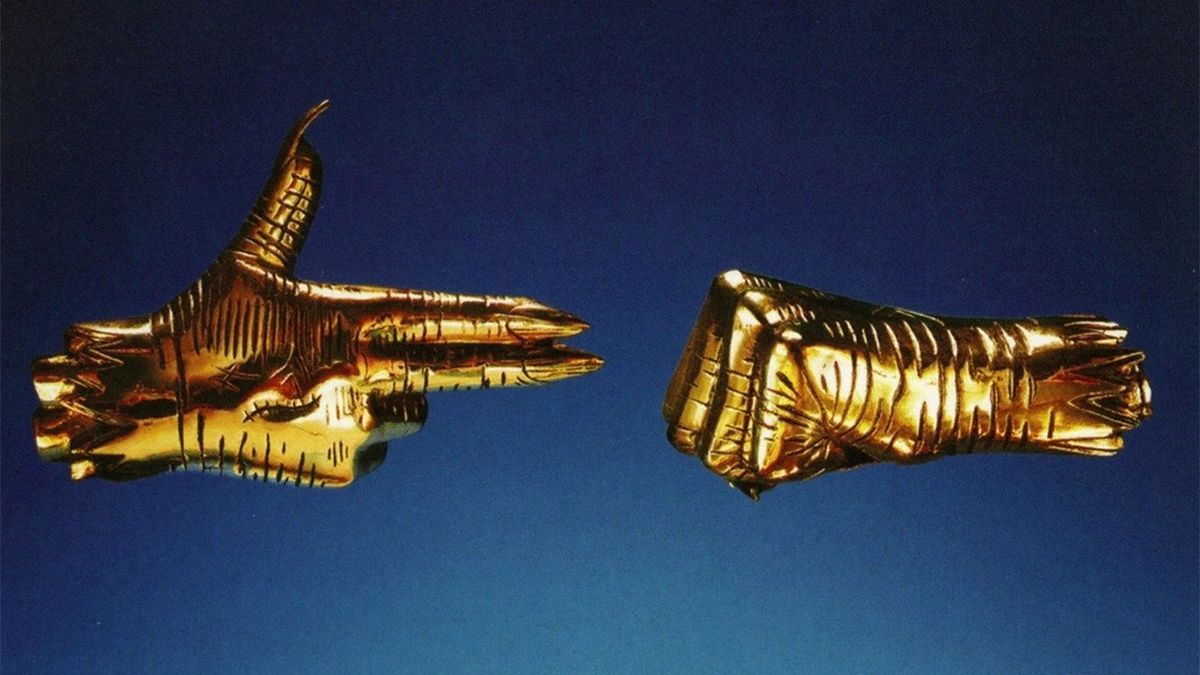The best band logos have to be really special. Just like any brand, bands can and do change their logos over time, but a really good band logo can stay with the band forever, adorning album covers and posters for festival lineups for years.
What makes a great logo design for a band? Sometimes it takes a clever concept and at others its pure simplicity, but in both cases, it needs to be highly original to become as iconic as the band’s music itself.
From hard rock to pop, we’ve picked some of the best logo designs past and present to provide inspiration. Make sure you also see our pick of the best TV logos and the best sonic logos for more ideas.
The best band logos in history
01. The Beatles
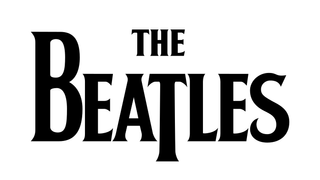
We’re guessing The Beatles need no introduction. The Fab Four are one of the most successful and influential bands of all time, but their famous drop-T logo wasn’t used on any of their original album releases.
Designed by Ivor Arbiter, the owner of a shop called Drum City, and refined by a sign painter called Eddie Stokes, the Beatles logo initially appeared on Ringo Starr’s drum kit instead. With its oversized letter B and elongated letter T, the logo is a simple but effective piece of type design.
It wasn’t until the 1990s that The Beatles’ company, Apple Corps, decided to trademark the design though. Since then, the logo has become a sleek way to unite and represent the entire catalogue of The Beatles.
02. Run the Jewels
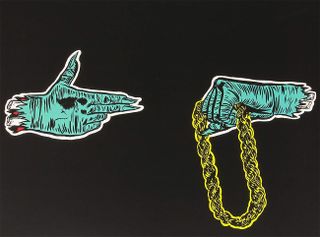
Hip hop supergroup Run the Jewels have grabbed plenty of headlines over the years. One constant has been variations on the same logo concept: a pair of hands, one in the shape of a pistol and the other a fist clutching a thick gold chain.
the original design was the work of artist Nicholas Gazin, and RTJ’s El-P revealed the thinking behind it in 2015. He published a screenshot on Instagram (since deleted) of an email to Gazin, in which he explains that the gun hand is robbing the hand holding the chain.
03. Abba
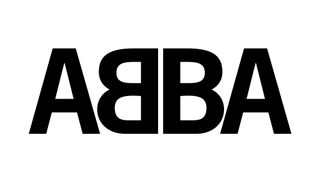
The Abba logo is the most pop of our pick of the best band logos. The famous ambigram design with its mirror ‘B’s in the centre has been with the band for much of its history, having first appeared on a 1976 compilation album. It’s distinctive and it takes the existing palindrome of the band’s name further by making it read the same visually in each direction.
Like many moments of inspiration, the initial idea came about as the result of an accident. During a photoshoot for a magazine, each member of the band was holding up the initial letter of their name. But when he developed the shots, the photographer Wolfgang “Bubi” Heilemann realised that Benny Andersson was holding his letter ‘B’ the wrong way around. Rune Söderqvist, who designed most of ABBA’s record sleeves, ended up adopting the idea in the band’s logo.
04. Rolling Stones
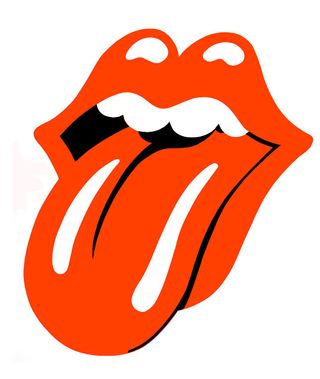
How could we not include this infamous logo from rock legends , The Rolling Stones? It was created by John Pasche in 1971, and the designer is said to have been influenced by Mick Jagger’s appearance, noting that his lips were the first thing you noticed about him. But Jagger himself has suggested that the Rolling Stones lips logo was also influenced by an image he saw of a disembodied tongue of Kali, the Hindu deity, in a book about India that he was given by his brother.
Either way, the striking design has continued to work well for the band, who have been working in music for over 60 years, but it went on to become much more than just a logo for a band, even helping to sell football merchandise.
05. The Monkees
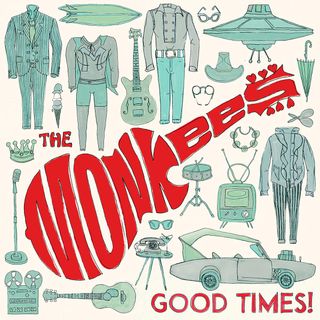
Infamously manufactured for TV, The Monkees still had a bunch of great tunes – thanks to a roster of top songwriters and session musicians – and a fantastic guitar-shaped logo, conceived by the show’s publicity man and drawn for $75 by Nick LoBianco. It’s stood the test of time, still looking fresh on the cover of 2016’s Good Times, the band’s first album in 20 years.
06. Led Zeppelin logo
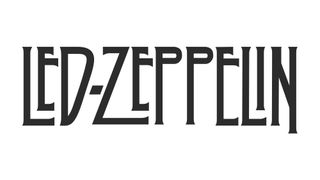
Along with the likes of the Rolling Stones logo, the Led Zeppelin logo is one of the most recognizable in rock culture, seen on worn T-shirts and vintage posters. The bespoke text was designed in 1973 by Storm Thorgerson and Aubrey Powell of the famed London design group Hipgnosis.
It was originally intended for the cover of the band’s fifth album Houses of the Holy but, whether intentionally or not, became the default logo for the band. The design shows the benefits of bespoke type, and also the precision involved. The letters are disproportionate, giving the logotype an experimental feel, but at the same time, the design feels perfectly balanced. The tall, stretched forms also sit well alongside the band’s use of occult symbolism.
07. Unkle
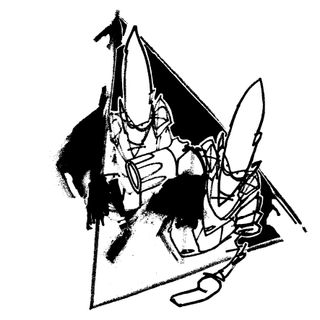
American graffiti artist Futura 2000 (now known as plain Futura) had form as an illustrator and graphic designer for music, most notably for his work on The Clash’s Combat Rock. But it was his work for James Lavelle’s Mo’ Wax records that really launched his design career, and which also led to him creating the logo and other imagery for Lavelle’s Unkle project. The two scratchy, pointy-headed alien figures are a perfect match for the first Unkle album, Psyence Fiction.
08. Adam and the Ants
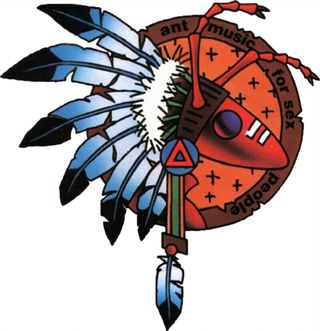
Adam Ant, with his background of art school and the DIY punk ethos, always had a keen interest in getting his band’s image right. From his early punk singles, for which he drew the cover artwork himself, through to his later chart-toppers, he’d mastermind powerful, eye-catching looks. And this Adam and the Ants logo, designed by Danny Kleinman and known as the Warrior Ant, is a corker.
09. The Doors
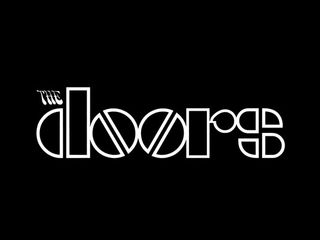
Simple and iconic. This bold, geometric design with the tiny, psychedelic and italicised ‘THE’ is perhaps one of the most recognised band logotypes in the world. Perfectly summing up the trippy, hippie counter-culture of the late ’60’s, The Doors didn’t need a symbol or an image. Their typographic design remains just as fresh to new eyes today as it did to the kids of the swinging sixties.
10. Dream Theater
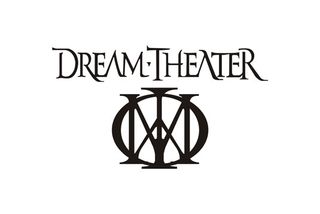
Progressive metal band, Dream Theater’s “majesty symbol” is a reimagining of Mary, Queen of Scots’ mark. Designed by former vocalist, Charlie Dominici, when the band was still known as Majesty (hence the symbol’s title) the band kept the logo and it has gone on to feature on nearly every Dream Theater release.
11. The Dead Kennedys
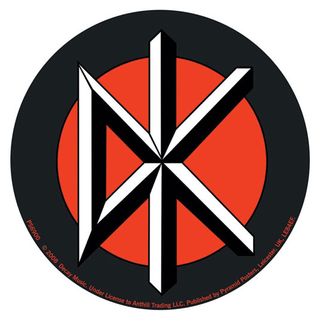
Designed by artist Winston Smith, the Dead Kennedys DK logo is a perfect example of simple, easily imitable graphic design. Singer Jello Biafra is quoted as saying, “I wanted to make sure it was something simple and easy to spray-paint so people would graffiti it all over the place.”
After showing it to Smith, he “came back with a bunch of designs that had the circle and slightly 3D-looking letters and he had ones with different patterns behind it. I liked the one with bricks, but ultimately I thought simple red behind it was the boldest and the best.”
12. Gorillaz
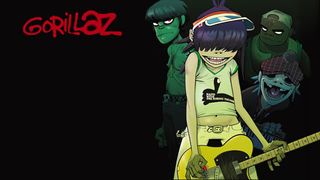
This entire band is arguably a logo, a brand and no doubt a great achievement in design. However, the graffiti-styled typeface is a recognisable testiment to how simply you can sum up your band, just by picking the right font. This typographic post-apocalyptic street art homage encapsulates the political aesthetics that Damon Albarn and Jamie Hewlett were so keen to capture.
13. Nirvana
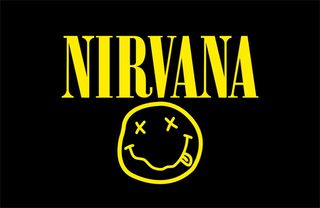
One of the most recognisable logos in music history, the Nirvana logo design has been a common sight T-shirts for over two decades. Featuring an Onyx typeface and a smiley face – said to be inspired by a strip club in Seattle – the juxtaposing colours make this an iconic band logo design.
14. Weezer
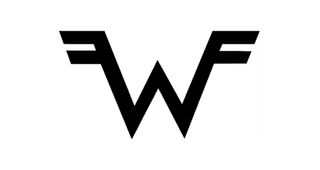
Designed by the band’s drummer, Patrick Wilsen, in 1993, the Weezer logo was originally in lower case. The ‘flying W’ used the Futura Medium font before a few alterations were made. Fans are known to recreate this logo design at shows using hand signals, proving its worth and success in creating a brand for the band.
15. Jurassic 5

Perfectly incorporating both the ‘J’ and the ‘5’ to portray Jurassic 5, this is an epic hip-hop logo that allows the design to be featured on a range of records thanks to its circular design. Designed by band member Charlie “Chali 2na” Stewart, it’s been produced in a wide range of colours for much of the band’s merchandise and remains a strong contender as one of the best band logos.
16. Public Image Ltd
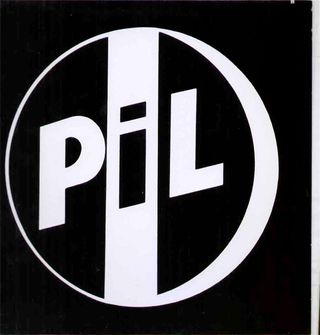
Renowned photographer Dennis Morris was responsible for the design of Public Image Ltd’s logo. Known for photographing The Sex Pistols and Bob Marley, Morris created this band logo design back in 1979. He also produced the iconic Metal Box packaging for the band, which is still regarded as one of the best album artworks of all time.
17. The KLF
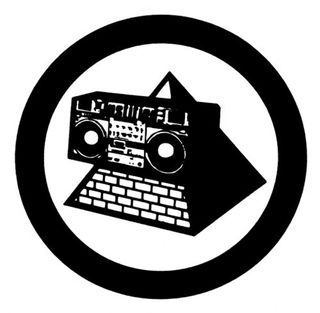
Situationist pranksters and acid house pioneers, the KLF also had a razor-sharp eye for iconography, which manifested itself in their record covers, their videos, their legendary Top of the Pops performances and, of course, their logos. Their pyramid blaster logo, perfectly shaped for vinyl, is a masterpiece; naturally, both Bill Drummond and Jimmy Cauty of the KLF now work as artists.
18. Metallica
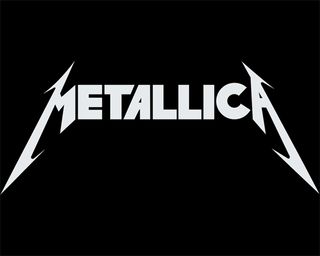
Created by Turner Duckworth, the famous Metallica logo got a redesign back in 2008. Based on the band’s original version from 1981, Duckworth also designed the identity and packaging for the band’s album Death Magnetic. Like countless other metal bands, Metallica’s own take on the metal aesthetic is something that their fans cherish; whether it be in the form of tattoos or scrawlings on school books.
19. Sunn O)))

As one half of the seismic drone-rock band Sunn O))), not only does Stephen O’Malley help to make some fantastic music – he also oversees the design and art direction of their releases. The visual is an important component to Sunn’s music and O’Malley has certainly triumphed with this long-standing, striking logo.
20. The Grateful Dead logo
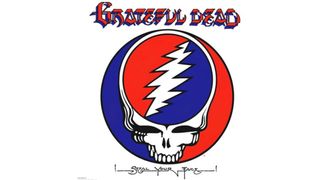
The Grateful Dead used a vast array of symbols but the ‘lightning skull’ that appears on the Steal Your Face album cover is the most recognisable and iconic. Comprising a skull and a 13-point lightning bolt, the logo was designed by the sound engineer Owsley Stanley and the graphic design Bob Thomas some years before the album was released, and it was used to promote the band’s concerts. It became so iconic, that the band decided the logo was the perfect option for the Steal Your Face album cover in 1976.
21. Kavinsky
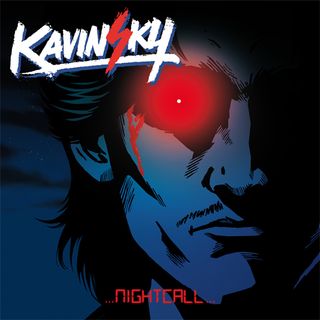
Making music reminiscent of ’80s film soundtracks, French producer Vincent Belorgey – quite aptly – appeared on the opening credits for Nicolas Winding Refn’s movie Drive. It’s easy to see why then, that his logo also evokes the sense of ’80s movies; with it’s retro-like font, it’s the perfect accompaniment to his music.
22. Foo Fighters
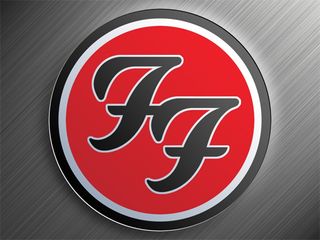
Another perfect example of a band logo that has proved popular with fan’s tattoos, The Foo Fighters logo comprises of a circle motif containing two interlocking ‘Fs’ and the band’s name in a slightly rounded and compact typeface. This is among the most popular and instantly recognisable logos in rock music.
23. The Ramones
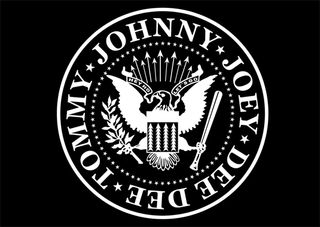
The Ramones’ logo was designed by New York City artist Arturo Vega, a longtime friend who lived with several members of the band. It’s proof that when you get a band logo right, it can go on to become one of the most iconic brands in the world. Basing it on The Presidential Seal, Vega wanted the design to portray an ‘All-American Band’.
24. The XX
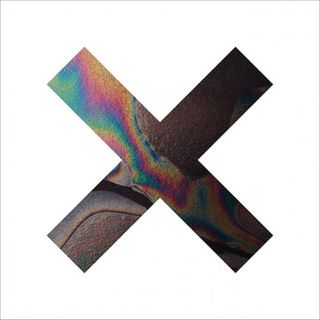
This is a relatively new kid on the block, but boy, does it work. Bursting onto the music scene in 2009 with their self-titled debut album, the black and white ‘X’ across the front sleeve was just as eye-catching as the music was enticing.
This latest variation of the logo was designed by band member Romy Madley Croft; a one-time art student who used oil imagery to create the affect within the letter. This band logo is a perfect example branding that will continue to work through each album release.
25. Black Flag
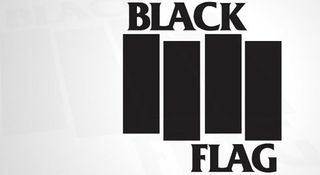
This has to be one of the most iconic band logos of all time. Created for Black Flag by guitarist and chief songwriter Greg Ginn’s brother Raymond Pettibon, he once stated in an interview that the black flag design was designed to represent anarchy. The four black bars combined with the bold typography make for a solid band logo.
26. Run DMC
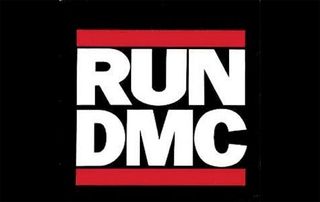
Run DMC broke barriers in music, which almost everyone in music today benefits from. Their logo is still one of the most prolific to ever grace the music industry and continues to adorn the chests and feet of hip-hop lovers across the globe. The solid typography and three-part colour scheme makes it infinitely timeless.
27. Nine Inch Nails
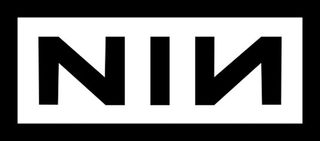
Designed by frontman Trent Reznor and Gary Talpas, the Nine Inch Nails logo is simplicity at its best. Featuring the letters set inside a thick border, the black and white creation first appeared on the band’s debut album Down in it, which was released in 1989.
It’s said to be inspired by Tibor Kalman’s typography on the Talking Heads album Remain in Light.
28. Daft Punk
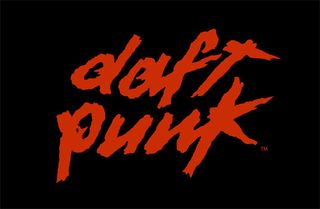
Evoking an extremely ‘punky’ look, the electronic duo produced one of the most well-known logos within the dance music scene. Designed by band member Guillaume Emmanuel “Guy-Manuel” de Homem-Christo, the logo ties in with the stand-out ethos of the pair. Using bold colours and textures, Daft Punk’s visuals are just as important as their tunes.
29. Public Enemy
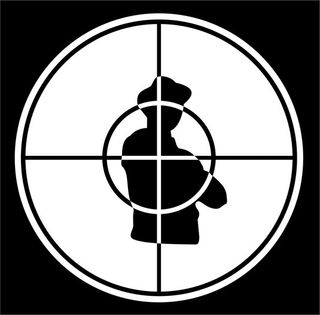
Another hip-hop gem in our list, this logo for Public Enemy was designed by Chuck D back in 1986. It was tightened up ahead of the release of Yo! Bum Rush The Show in 1987 by New York artist Eric Haze.
Many claim the target to be a state trooper but it is in fact a silhouette of a B-boy. It was also announced in 2013 that the group were to be added to the Rock & Roll hall of fame.
30. The Streets
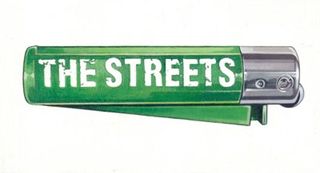
It may not be as iconic as our other inclusions but we just had to feature this logo from British group The Streets. Evoking the exact feel and message of their debut album Original Pirate Material, the gritty typography effortlessly complements the lighter image. There’s been a few variations throughout their career but we love this original design.
31. Wu-Tang Clan
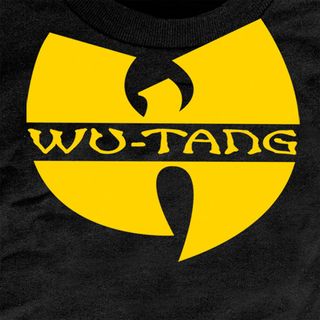
The Wu-Tang ‘W’ is one of the most distinguishable logos in hip-hop culture, with its members adorning the ‘W’ on everything from clothing to chains, but it is most prominent on dozens of their album covers. Created by DJ and producer Mathematics, the band have stuck by the original design throughout their expansive career.
32. Yes
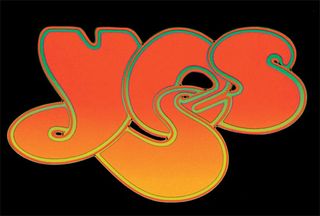
English artist and graphic designer Roger Dean created this iconic, bubbly logo, which first debuted on the band’s 1972 LP Close to the Edge. He also crafted Yes’ album artwork and stage shows; solidifying the band’s brand throughout the ages. It has had a variant of colours but that never makes the typography any less engaging. This is a logo that perfectly sums up the 1970s.
33. Buzzcocks
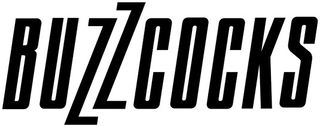
A simple yet instantly recognisable band logo, this one was created by Malcolm Garrett in early 1977. He went on to work with the band for several years throughout their career, creating visuals for promotional material. The fast, edgy and disjointed typography is the perfect personification of one of the greatest British bands.
34. Aphex Twin
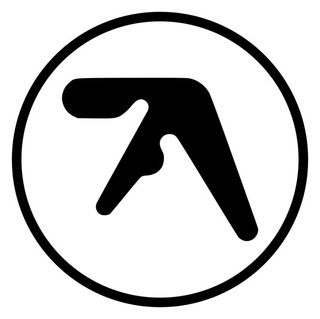
First appearing on the 1992 release of Xylem Tube, Richard D. James aka Aphex Twin has continued to use the logo throughout his impressive career. Designed by Paul ‘Terratag’ Nicholson, the logo evokes an unsettling yet beautiful image that wholly coincides with the impeccable music of Aphex Twin.
35. Death From Above 1979
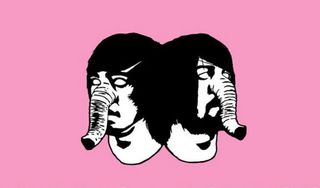
An eye-popping graphic design delight, this logo for Death From Above 1979 has graced the covers, stage shows, banners and posters for the noise rock duo since the beginning of their career. The bold choice of colour makes it a logo with a difference, with no need for a name as the logo is instantly recognisable.
36. Justice
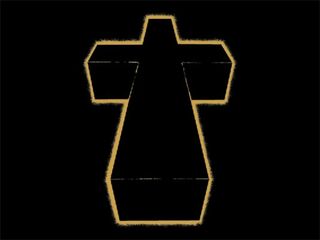
Choosing to use such a universal symbol as your band’s logo is a dangerous path. However, this creation for French electronic duo Justice just seems to work.
Band member Gaspard Augé once stated that the influence for the decision was ‘that a music venue is like a church in that everyone is gathering together and focusing on one point.’ The logo has adorned the band’s live shows and album covers, becoming almost as synonymous as their songs.
37. Radiohead
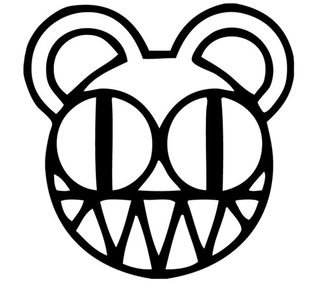
Radiohead haven’t really had a regular band logo throughout their career but this is one that truly stands out (and adorns many a fan’s body.) Designed by artist Stanley Donwood and Thom Yorke, the ‘modified bear’ was created for the release of Kid A.
The name of the bear either ironically or purposely contributes to the influx of modern art without meaning, without complexity, and without use. If Radiohead’s career is anything to go by, we’re guessing it’s on the ironic side of things.
38. Devin Townsend Project
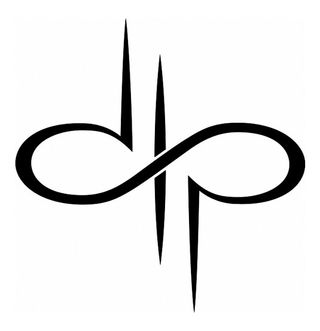
A simple, typography-based logo design, this creation for the Devin Townsend Project combines the three initials of the band’s name in two swoops. This band logo was added to the list on the suggestion of one of our Twitter followers. It was designed by Travis Smith and show us that sometimes less is more when it comes to band logos.
39. Outkast
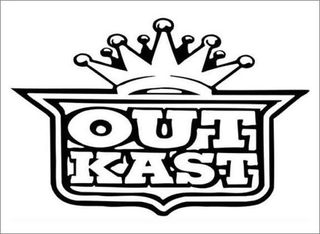
The final hip-hop logo in our list, this creation for the duo evokes the fun aspect of their music. Featuring graffiti-like font complete with a crest and crown, the pair even comment on the logo during their song Morris Brown, stating “OutKast royalty by design of logo. Wanna count it out loud?”
40. Misfits
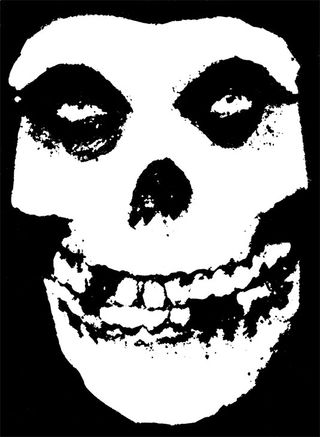
The Misfits’ skull logo first appeared on the Horror Business single, based on a poster for The Crimson Ghost. It proved so popular that the image quickly became the mascot for the band and has been used frequently on the band’s releases and merchandise ever since.
41. Darkthrone
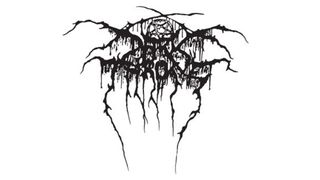
Black metal and death metal logos are a whole genre of their own, and one that spits in the face of some of the usual rules of logo design. Legibility? That’s for god-fearing folk, in the world of death metal, no band would be seen, er, dead with a legible logo. The more illegible the better so only the initiated know what it means. The Darkthrone logo is one of our favourites. Unlike some, the spidery scrawled letters are discernable, but there’s still a mass of lovely gnarly tangled roots and enough of a subtle lack of symmetry to suggest the logo could have been a first sketch in the back of a school exercise book. There’s even a hidden pentagram in there.
42. Oasis logo
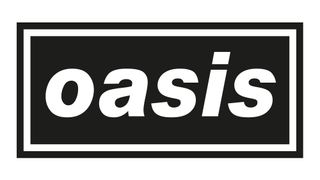
The best-known Oasis logo is eminently simple, featuring the band’s name in white text on a black rectangle with white and black borders. It was heavily influenced by the Decca Records logo, but it’s no less more effective for it.
Designed by Brian Cannon of Microdot back in 1993 when the band was still unknown, it was intended to be highly versatile design, working in different types of media, including black and white press ads. It made sense for the band to go back to this design to promote their 2024 and 2025 reunion tour.
For more design inspiration, see our pick of the best logos of all time, the best sports logos and the best fashion logos.
